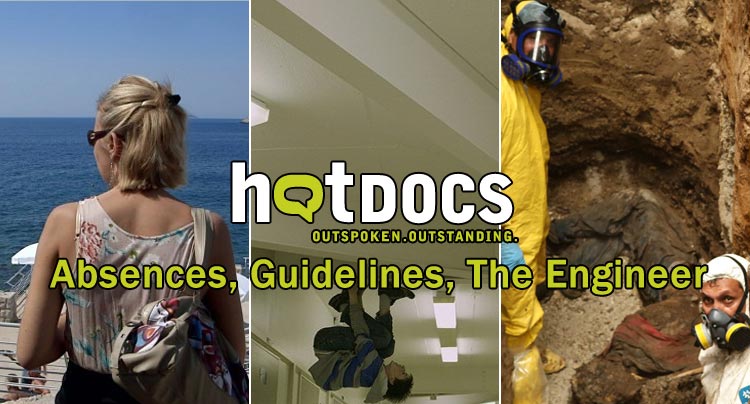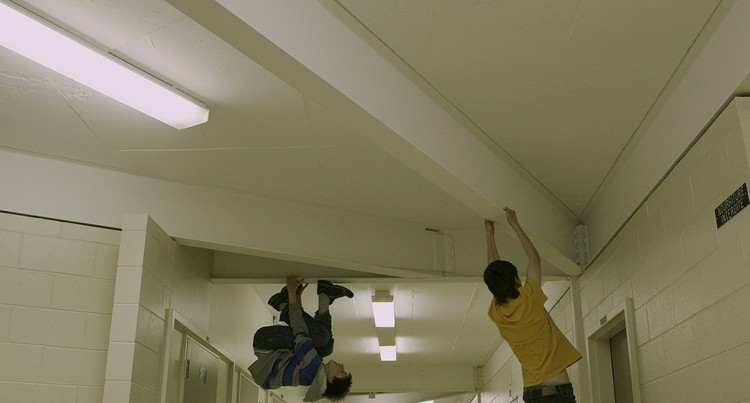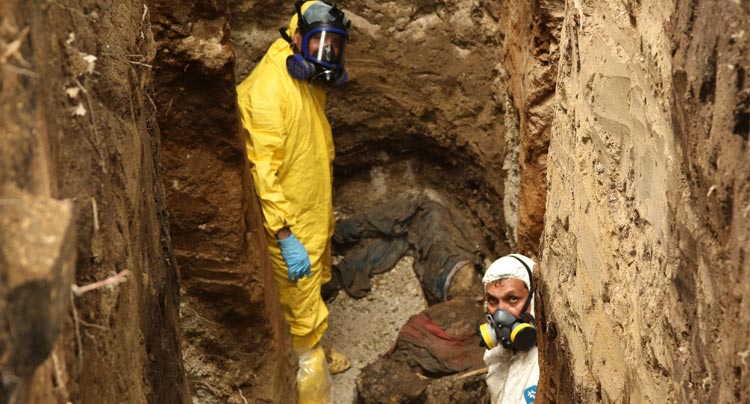Hot Docs 2014: Absences, Guidelines, The Engineer

Absences

As director Carole Laganière’s mother begins to lose her memory from Alzheimer’s, she turns her camera to three other people suffering a major loss: a Croatian immigrant revisits her home country to find her estranged mother, an American author discovers an extended family his father kept hidden from him, and a French-Canadian woman searches for her missing sister in Toronto.
Laganière cuts between these four lives (including her mother’s) to explore the psychological impact of loss. As the author explains at one point, the feeling of loss transforms into a quest for something to fill the void. Unfortunately, Laganière fails to adequately communicate this idea through her filmmaking. Absences is mostly made up of bland observational footage of her subjects’ lives, making little room for exploring such a rich topic. The missing sister branch of the film is the most interesting, and could make for an interesting documentary feature on its own.
Guidelines

Jean-François Caissy clearly has Frederick Wiseman’s High School in mind with his latest film. Following a rural Quebec high school over a school year, Guidelines is like an artsy, more abstract version of Wiseman’s landmark documentary. Delinquent students are filmed in a dim office as authority figures in the school explain different rules the students must follow in order to avoid punishment (these meetings are referred to as “interventions”).
Caissy and cinematographer Nicolas Canniccioni film almost entirely in fixed, well-composed shots in the school and its surrounding areas. A brief interlude of teens playing around outside of school in the forest and lake highlight the conflict between the kids’ casual, fun lives and the strict rigidity of school. This effect is achieved through framing alone; scenes at the school look boxed-in, while the outdoors are filmed in long shots. Guidelines prefers to let viewers come to their own conclusions about what Caissy shows, a choice that ends up paying off nicely. It’s an engrossing look at teenage life backed up by terrific visuals.
The Engineer

Israel Ticas is the only criminologist in El Salvador, spending almost all of his time digging up dead bodies in unmarked graves across the country. A recent truce between El Salvador’s two largest gangs has seen murder rates plummet, but police and citizens describe this as a “smokescreen”; the number of disappearances keep rising, meaning the gangs haven’t changed their operations aside from covering their tracks.
The Engineer follows Ticas around as he travels from one site to another, discovering mutilated corpses and trying to punish those responsible. Ticas is a likeable subject, even if his obsession with death can get a little disturbing (his office walls are plastered with grisly crime scene photos), and his comments on how he deals with such a life-threatening job are fascinating to hear.
Directors Mathew Charles and Juan Passarelli take an unflinching look at Ticas’ work, but their use of vibrant montages makes for plenty of jarring tonal shifts. Case in point: After Ticas discovers a decapitated 8-year old in a well, a montage of city life set to upbeat music immediately follows. Charles and Passarelli might have used these sequences to underscore how natural death and violence is to people in El Salvador, but no matter what the intent is, it makes for awkward viewing. Other than that, The Engineer is an interesting look at Ticas and his grisly line of work.
